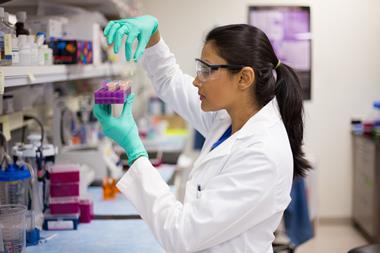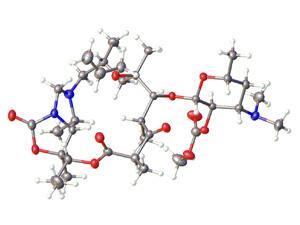Former Harvard chemist says he lost out on millions after the technology he worked on was licensed to Merck & Co
A chemist who worked as a postdoctoral researcher at Harvard from 2011 to 2015 has sued the university, arguing that he was unfairly excluded as an inventor on a long-time project and thereby lost out on royalty payments. Alexander Arefolov’s lawsuit claims that nearly $6 million (£4.7 million) was paid to the other listed inventors.
The invention in question involves developing a compound called cortistatin A as a cancer treatment. Harvard chemistry professor Matthew Shair invited Arefolov to accept a visiting scientist position at the university in July 2011 to help with the search for new and more active analogues of the molecule. Arefolov became a postdoctoral researcher at the university in October 2011 and continued to work on the project until April 2015.
Harvard ultimately licensed intellectual property from the cortistatin A project to Merck & Co in early 2016, and the university received an upfront payment of $20 million. Normally, inventors receive roughly a third of patent royalties after a 15% administrative fee is deducted.
‘Despite Dr Arefolov’s inventive contributions to the cortistatin A project, Dr Shair made the decision to exclude Dr Arefolov as an inventor,’ according to the complaint. Harvard’s intellectual property policy requires Shair to share the royalties equally among all inventors, Arefolov argues.
However, US patent law states that a patent may be ruled invalid if all inventors are not named on a patent, so institutions and principal investigators are both incentivised to ensure that everyone who meets the legal standard for inventorship is listed on the patent, according to Harvard.
Arefolov’s attorney is Brian O’Reilly, who also represented Mark Charest, a former graduate student at Harvard who sued the university for $10 million in 2013 claiming loss of royalty payments and reached an agreement with the institute last year.
















No comments yet